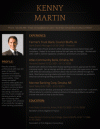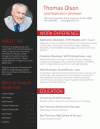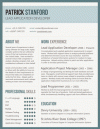Through body language, we unconsciously communicate things which we’re feeling. This unspoken style of communication is very powerful, as it allows for human beings to communicate feelings and intentions with one another without having to speak a word. Unfortunately, in situations where we should be more guarded and less revealing of our intentions or emotions, such as during a job interview, body language can often be a liability to helping one secure employment. The good news, however, is that it is easy enough for us to manipulate our own body language by first maintaining awareness of it and then changing it to best suit the situation.
Communicate Strength and Openness
Have a slouched appearance, even if it is just the result of being too tired, can communicate to employers timidness and shyness, which aren’t the traits that companies are looking for in potential workers. The best way to combat this is to consciously maintain an upright posture. This not only shows that you’re more extroverted — even if you’re actually an introvert — but also that you’re confident in your own abilities and strengths.
Be Mindful of Facial Expressions
It is easy enough for job hunters to unintentionally communicate something negative through facial expressions which they might not even realize they’re making at the time. We all grow use to making certain expressions unconsciously. During an interview, however, these expressions can work against us. Staring above the head of the interviewer out into space, for example, is often a tactic used by introverts. While the person doing this obviously means no disrespect, it can be interpreted by the interviewer that the job hunter is not listening to them. Instead, it is best to look at the person, maintaining eye contact, and only occasionally looking away, but always return back to them. Also, nodding one’s head every few seconds shows that they’re in fact listening to what is being said.
Don’t Betray Your Nature
While one should seek to have better control of their body language during the interview process, they shouldn’t betray their very being by pretending to be something they’re not. For example, introverts should try to be overly sociable, while at the same time extroverts shouldn’t pretend to be reserved just for the sake of trying to satisfy the interviewer. Instead, the idea is to control our own body language in order to communicate strengths as opposed to weaknesses, and not to transform ourselves into actors that are the opposite of who we really are inside. So be mindful of unspoken cues, change them when required to do so in order to make a good first impression, but also don’t change the body language so drastically as to completely alter who you essentially are as a person.




